June 3, 2025 | 09:56 GMT +7
June 3, 2025 | 09:56 GMT +7
Hotline: 0913.378.918
June 3, 2025 | 09:56 GMT +7
Hotline: 0913.378.918
The National Scientific Workshop on Combating Air Pollution and Improving Air Quality in Vietnam, organized by the Ministry of Agriculture and Environment (MAE), with representatives from UNDP and WHO, took place over two days, April 24-25. The event aimed to discuss and share solutions on emissions inventories, monitoring models, early warning systems, forecasting, low-emission zones, outdoor burning, the health impacts of air pollution, and international lessons learned. The workshop was officially opened on April 24.
In his opening speech, Deputy Minister Le Cong Thanh emphasized that air pollution is one of the most serious environmental challenges in Vietnam, particularly in major cities like Hanoi and Ho Chi Minh City.
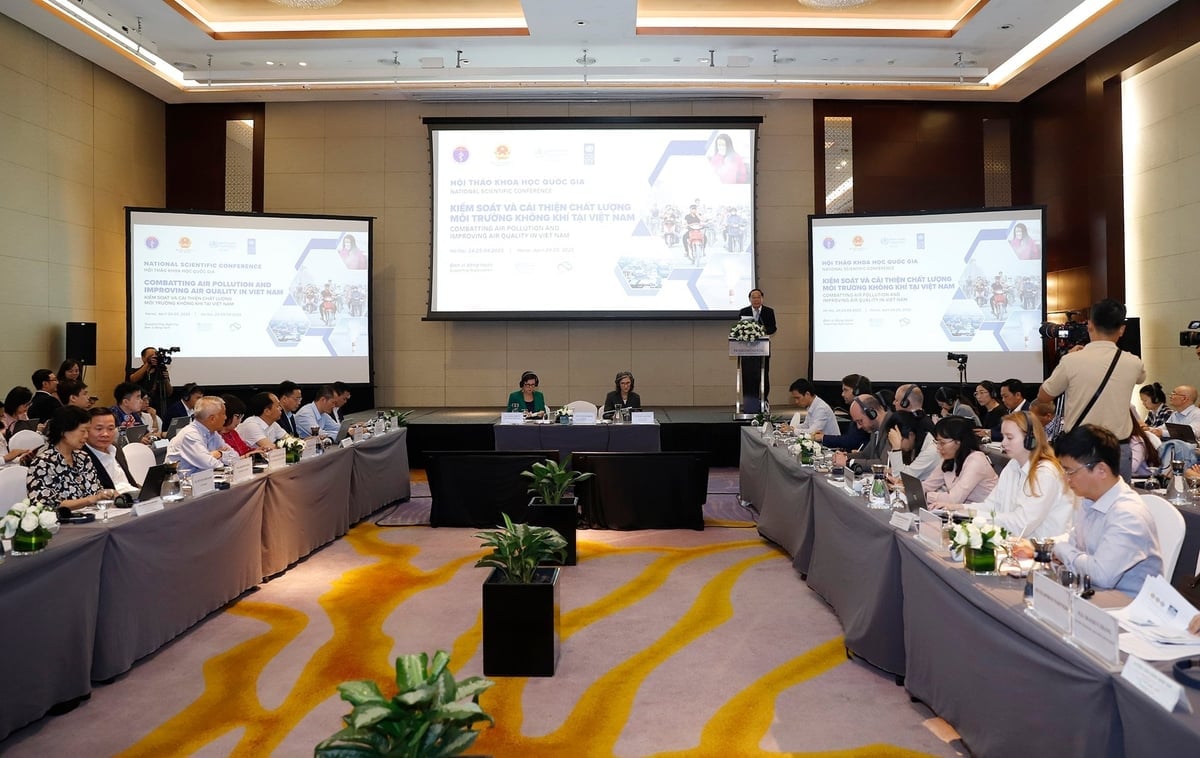
The National Scientific Workshop on Combating Air Pollution and Improving Air Quality in Vietnam, April 24. Photo: Khuong Trung.
Air quality monitoring data and the Air Quality Index (AQI) in these cities consistently remain at moderate levels, with a noticeable trend toward deterioration in recent years. Pollution levels have been increasing steadily, raising growing concerns about the impact on the environment and public health. Notably, concentrations of fine particulate matter (PM2.5) in these urban areas frequently exceed the national technical standards for ambient air quality and are significantly higher than the safety thresholds recommended by the WHO.
Air pollution is not only prolonged seasonally but also expands spatially, directly affecting public health, socio-economic development, and residents’ daily lives.
The causes of air pollution stem from various sources, including emissions from vehicles using fossil fuels, poorly controlled urban infrastructure construction and renovation activities, emissions from industrial production facilities, and the open burning of rice straw, waste, and biomass.
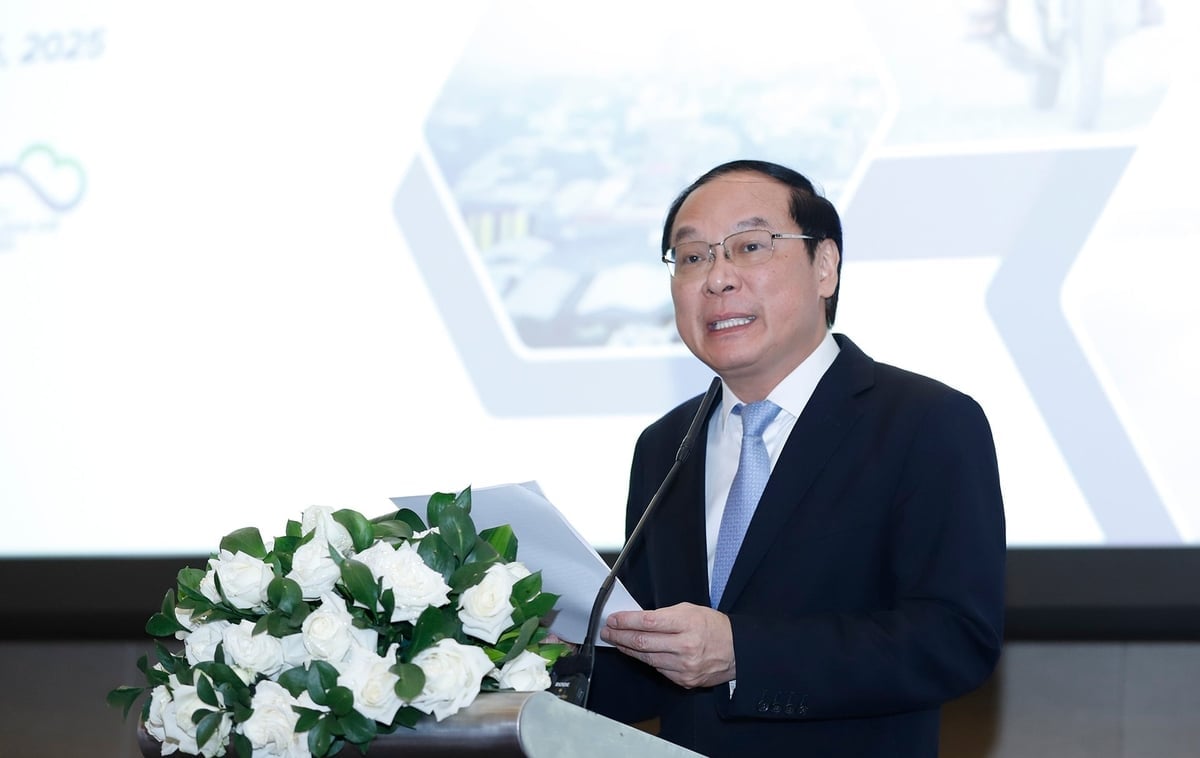
According to Deputy Minister Le Cong Thanh, improving air quality is a shared responsibility of all ministries, sectors, localities, organizations, and the community. Photo: Khuong Trung.
In Hanoi, air pollution typically increases significantly from September to April of the following year due to unfavorable weather conditions, temperature inversions, calm winds, and low rainfall. Meanwhile, in Ho Chi Minh City, many assessments and studies suggest that high traffic density and industrial activities are the leading causes.
In addition, there is another factor affecting air quality that, although not yet officially studied, is currently being discussed and evaluated by regulatory agencies and scientists. These emissions from certain natural and transboundary sources, including dust from agricultural activities, forest fires, and smoke from neighboring countries, also spread and contribute to the worsening pollution situation.
Given the upward trend in air pollution, the MAE, with the Department of Environment as the focal point, has been coordinating with various ministries, sectors, localities, and enterprises to implement several key tasks. These include developing emission inventory projects in key economic regions in the North and South to support data analysis, assessment, modeling, and forecasting scenarios for air pollution.
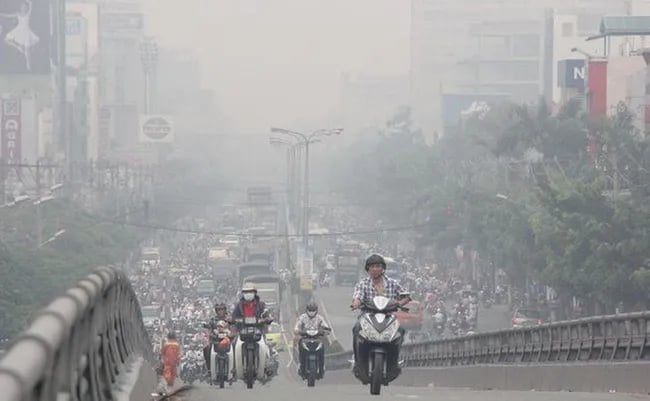
Air quality in Hanoi has decreased by 7%, and in Ho Chi Minh City, it has decreased by 3% in recent years. Photo: TTXVN.
Currently, the MAE is piloting a 48-hour air quality forecasting model at the Northern Environmental Monitoring Center. The Ministry is also finalizing a National Action Plan to address pollution and manage air quality, with specific goals set for the 2025–2030 period, covering various solution groups such as energy, emission sources, transportation, and construction.
At the same time, the Ministry has actively engaged in international cooperation and mobilization of resources; it has collaborated with international organizations such as UNDP, ADB, the World Bank, and UNEP, as well as corporations and state-owned enterprises, to implement pilot projects, develop a rapid air quality monitoring network, promote technology transfer, green transportation, and mobilize financial and technical resources to improve air quality.
In the near future, MAE plans to conduct two working missions, including a high-level delegation led by the Minister, to exchange experiences and learn from Beijing’s approaches to improving, controlling, and managing air quality.
“Today’s scientific workshop holds significant importance. Throughout the two-day event, the sessions will focus on topics such as: emission inventory, monitoring models, warning and forecasting systems, low emission zones (LEZ), open burning, correlation with health impacts, and international lessons learned.
We are also very eager to hear scientific reports from China, Thailand, renowned universities, and international organizations. Based on these, we aim to propose adaptation recommendations that are suitable for Vietnam, aligned with local conditions, available resources, and varying levels of development.
The events in this scientific workshop series will serve as important input for finalizing the National Action Plan on Pollution Mitigation and Air Quality Management for the 2025–2030 period, as well as for upcoming policy proposals", said Deputy Minister Le Cong Thanh.
According to the Deputy Minister, improving air quality is not solely the responsibility of the Ministry of Agriculture and Environment, but a shared duty of all ministries, sectors, localities, organizations, and communities.
“In addition to our goal of achieving double-digit economic growth in the coming period, we must also place strong emphasis on environmental protection. Starting now, we need to join hands and take action to preserve blue skies, protect public health, and build a sustainable living environment", Deputy Minister Le Cong Thanh emphasized.
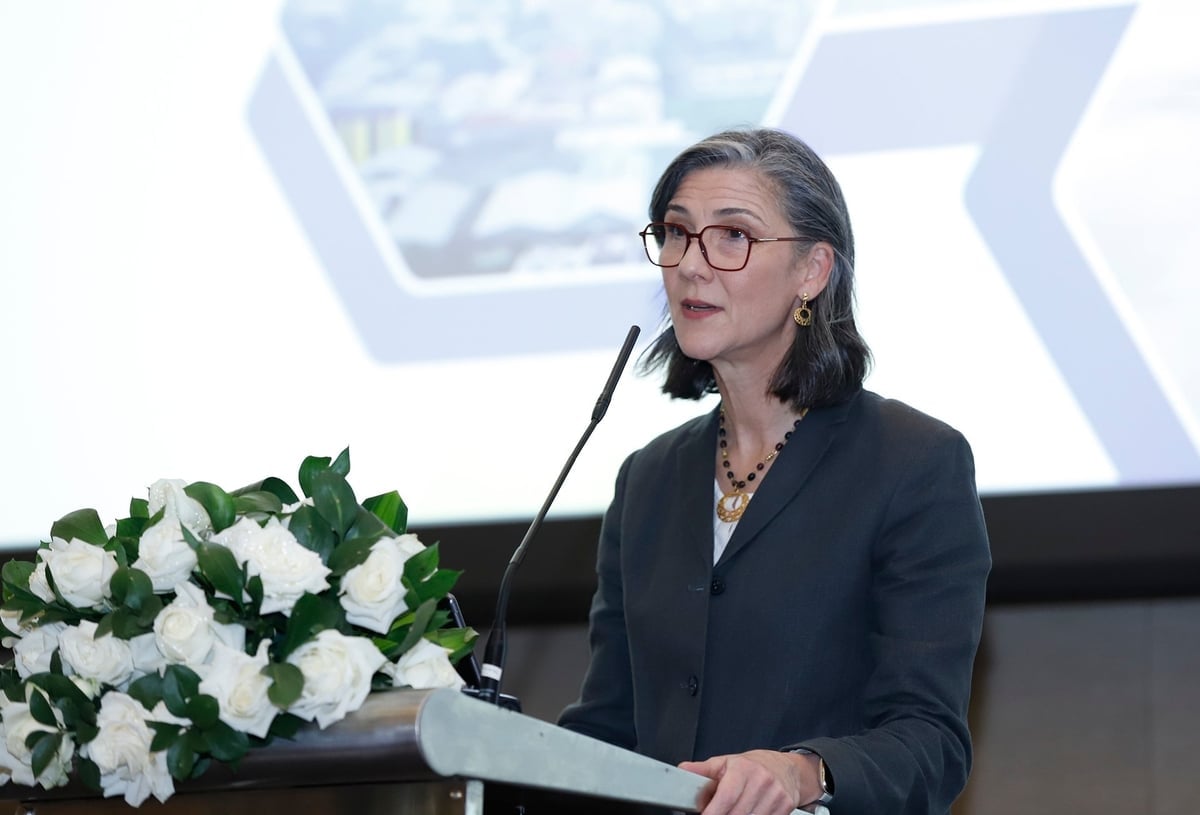
Ms. Ramla Khalidi, Resident Representative of UNDP in Vietnam, delivers a speech at the workshop. Photo: Khuong Trung.
Ms. Ramla Khalidi, Resident Representative of UNDP in Vietnam, stated that addressing air pollution is crucial in the effort to achieve the Sustainable Development Goals by 2030. While addressing the impacts of air pollution is very important, priority must also be given to actions aimed at addressing the sources of air pollution.
Ms. Ramla Khalidi called on all stakeholders, including government agencies, private sector partners, civil society organizations, the international community, local authorities, and the general public, to accelerate actions against air pollution.
Meanwhile, Dr. Angela Pratt, WHO Representative in Vietnam, stated: "Poor air quality poses a significant health risk to the public. If we do not act soon, the health impacts of air pollution could undermine the achievements we have made in recent decades."
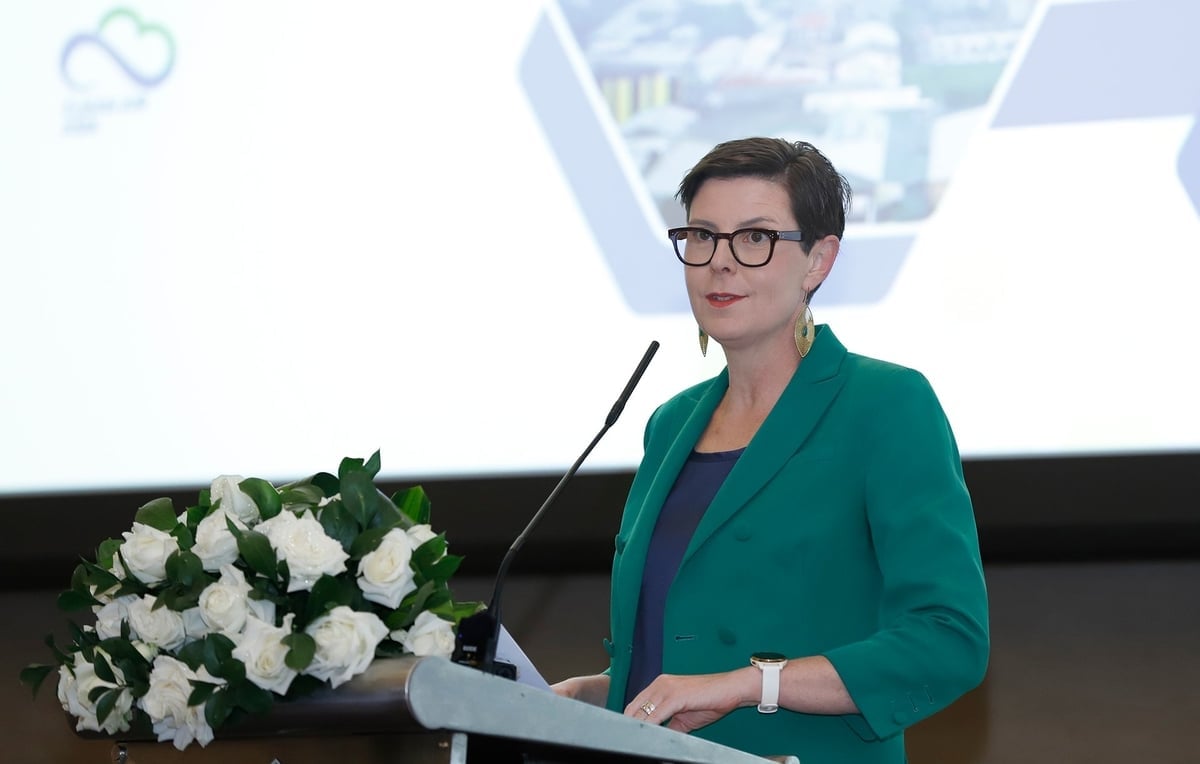
Dr. Angela Pratt, WHO Representative in Vietnam, shares at the workshop. Photo: Khuong Trung.
“When I drove into Lebanon, through the haze of smoky air, it left a lasting impression on me. Air pollution is one of the most discussed issues today, with many studies being conducted on this topic. Air quality in Hanoi has decreased by 7%, while in Ho Chi Minh City it has decreased by 3% in recent years. These may seem like small numbers, but in reality, they are quite significant.
I acknowledge and appreciate the Vietnamese government's commitment to improving air quality. There is a need to strengthen the scientific research foundation and improve research and forecasting efforts... Air is life", said the UNDP Resident Representative in Vietnam.
After this workshop, on the afternoon of April 25, the Ministry of Agriculture and Environment will organize a seminar with the National Assembly's Supervisory Delegation on mechanisms, policies, and legal frameworks related to air quality management. This seminar aims to identify existing issues and improve the legal framework, creating favorable conditions for localities and businesses to implement air pollution control measures.
Translated by Phuong Linh
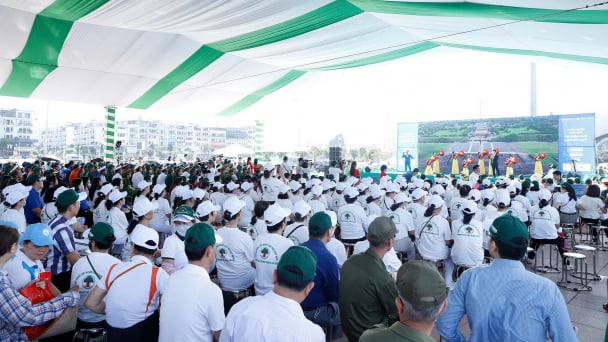
(VAN) On June 1, a grand meeting was held in Ha Long city, Quang Ninh province, to celebrate World Environment Day and launch the National Action Month for the Environment 2025.

(VAN) From the meeting in Ha Long, the United Nations called for the establishment of a legally binding global treaty to end plastic pollution.

(VAN) ‘Accounting trick’ to support methane-emitting sectors undermines fight against climate change, say researchers.
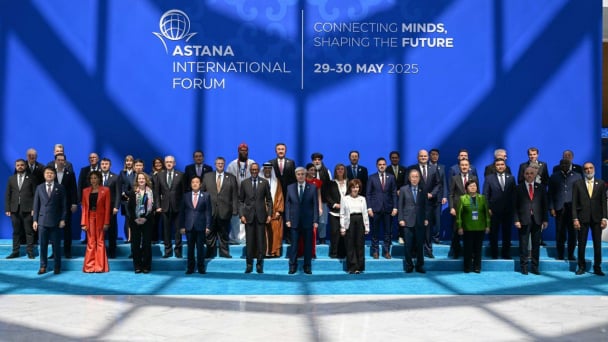
(VAN) Water conservation, transboundary cooperation and sustainable agriculture are key to securing the region’s future, says FAO Director-General QU Dongyu.
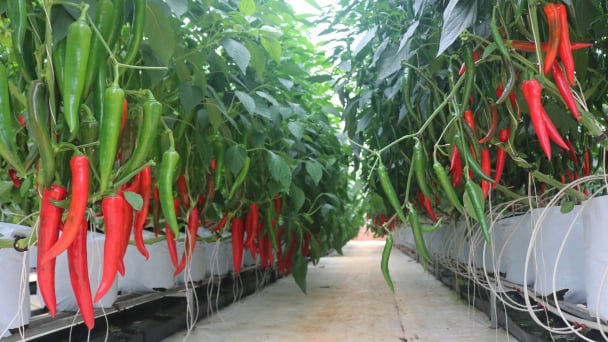
(VAN) Professor Dr. Mai Trong Nhuan believes that Lam Dong will serve as a 'supermarket' of green agricultural products for the entire country and a beautiful destination acting as a 'health charging station' for tourists.

(VAN) A delegation of nearly 50 Vietnamese agencies, agribusinesses, and agricultural associations has officially begun its working trip to the United States.
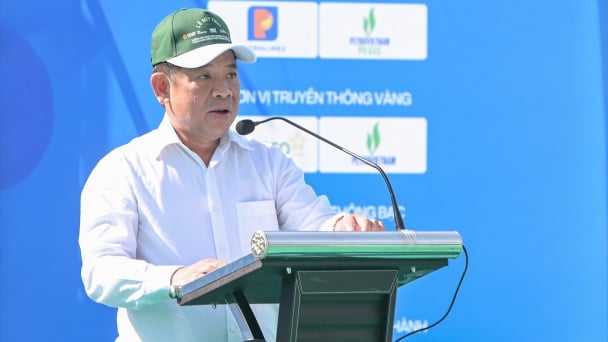
(VAN) Mr. Van Ngoc Thinh, CEO of WWF-Vietnam, warned that plastic waste is the starting point of a chain of ecological degradation and the decline of coastal livelihoods.